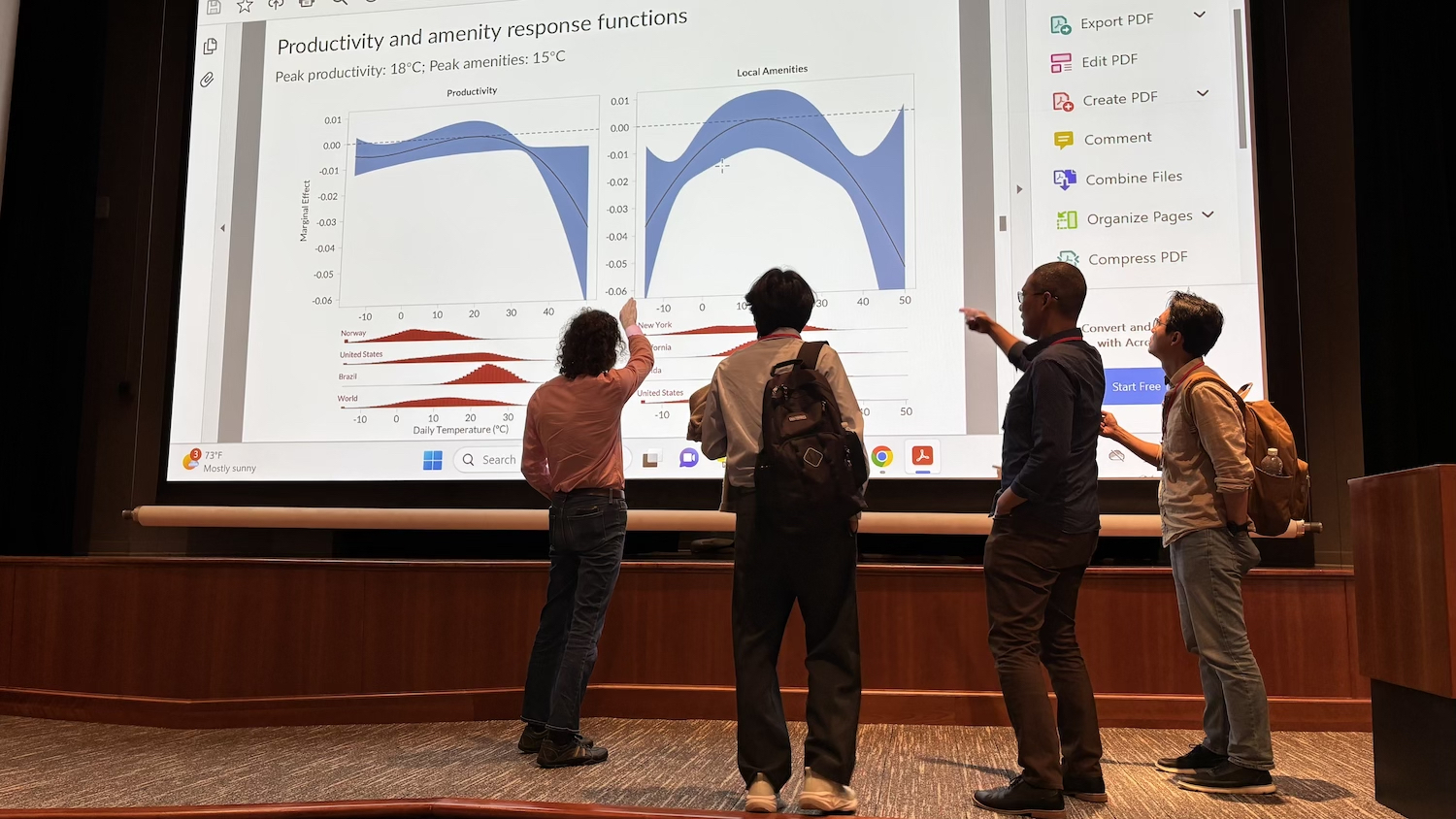Trade and Ag Experts Converge at NC State
An annual international economics workshop drew experts from across disciplines and around the world in early May.

The world’s grand challenges don’t conform to the boundaries between academic disciplines—or the borders between nations. Trade decisions made in Brussels have profound effects on oil palm farmers in Malaysia. A war between Ukraine and Russia cuts off access to fertilizer for farmers on the Indian subcontinent.
Problems that sprawl across sectors demand problems that cross fields of study. In early May, experts in economics and agriculture came together at the Poole College of Management to find them. Roughly 50 scholars and students attended the second annual international economics workshop May 8-9 at Nelson Hall.
This year’s event focused on the intersection of agriculture, international economics and climate science. That was partly a nod to the World Trade Organization’s 2024 meetings on the same topic and partly an acknowledgement that the three fields have much to learn from one another.
The workshop was structured around presentations where a scholar presented a paper and two peers from other fields commented on it.
“Having a trade expert and an ag expert—or an environment expert and an ag expert—commenting on these papers really helps make us aware of our blind spots,” said Andrew Greenland, an assistant professor of agricultural and resource economics at Poole and the College of Agriculture and Life Sciences.
Greenland, Luca David Opromolla, the Owens Distinguished Professor of International Economics in the Department of Agricultural and Resource Economics, and Filomena Garcia, an associate professor of economics, co-organized the event. The trio credited support from former NC State trustee and Caterpillar CEO Dr. James Owens for making the workshop possible.
Talk topics included the effects of climate change on migration and diet, the impact of European Union import bans on Malaysian palm oil production, the challenges of transferring agricultural innovations to other countries, and the connections between trade risk and food insecurity.
“I learned a great deal about the state of the art in international trade research,” said Barry Goodwin, William Neal Reynolds Distinguished Professor of ag and resource economics. “ The presentations were terrific and getting a chance to mingle with distinguished guest speakers was an added bonus.”
Organizers built long meal breaks into the presentation schedule and organized an outing to a Durham Bulls game for participants, who came from as far away as Portugal. The goal, Greenland said, was to encourage human connections that might lead to shared research in the future.
“This is our second conference, and I think it really consolidates the fact that NC State is becoming a powerhouse in international economics,” said Opromolla.
Many of the papers discussed at the workshop are available online. Check them out:
- Fertilizer Import Bans, Agricultural Exports, and Welfare: Evidence from Sri Lanka, presented by co-author Devaki Ghose, a research economist at the World Bank’s Development Economics Research Group
- E.U. Trade Restrictions and Heterogeneity Among Malaysian Oil Palm Farmers, presented by author Audrey Tiew, an assistant professor of economics at New York University
- Trade Risk and Food Security, presented by author Fernando Leibovici, an economic policy advisor at the Federal Reserve Bank of St. Louis
- Inappropriate Technology: Evidence from Global Agriculture, presented by co-author Jacob Moscona, 3M Career Development Assistant Professor of Economics at the Massachusetts Institute of Technology
- The Economic Effects of Climate Change in Dynamic Spatial Equilibrium, presented by co-author Gary Lyn, a senior economist for the Federal Reserve Board of Governors
- The Geographical Leakage of Environmental Regulation: Evidence from the Clean Air Act, presented by co-author Daniel Yi Xu, a professor of economics at Duke University
- Power Decarbonization in a Global Energy Market: The Climate Effect of U.S. LNG Exports, presented by author Constanza Abuin, a Ph.D. candidate in economics at Harvard University
- Agriculture, Trade, Migration and Climate Change, presented by author Hyeseon Shin, a Ph.D. candidate in agricultural, environmental and development economics at The Ohio State University
- Diet, Economic Development, and Climate Change, presented by co-author Heitor Pellegrina, Patrick J. O’Malley III and Christine A. O’Malley Assistant Professor of Economics at the University of Notre Dame
This post was originally published in Poole Thought Leadership.


